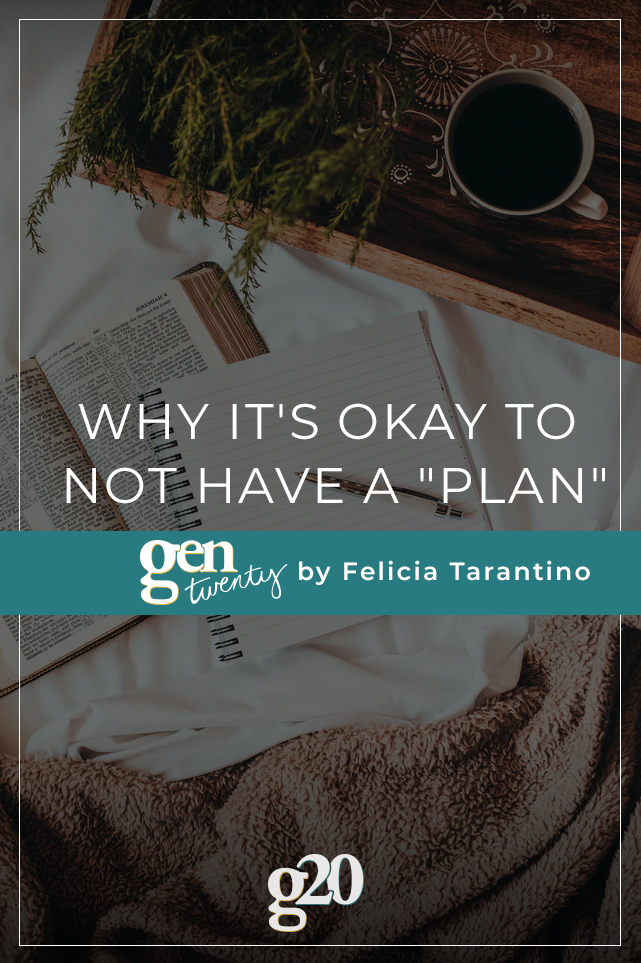From childhood, we are encouraged to have a plan.
It starts out simple enough. “What do you want to be when you grow up?” Most kids go for the obvious answers: teacher, astronaut, doctor, veterinarian. In my case, it was an artist, although I have never once exhibited a sliver of artistic talent. But hey, a kid can dream, right?
But the pressure mounts early. Your answer isn’t really a throwaway guess at what the future holds for you. It’s the first step in your “plan”. By my preteen years, I had set my sights on becoming a published author someday. Before I reached high school, people around me were asking why I hadn’t published any of my work yet.
For some people, their aspirations never change. They know their whole lives what they want to do, and they stick to that plan. Which is great!
But what happens when you’re in your 20s… and you still don’t know what you want to be when you grow up?
Why It’s Okay to Not Have a “Plan”
I was 19 years old when this anxiety first took hold. It wasn’t until I was sitting in front of a therapist, reciting a grocery list of milestones I needed to hit on a set timeline – get a job, get engaged, get married, have my first kid – that I realized how much the stress of having a plan had affected my overall happiness.
The truth is, in spite of my detailed strategy to conquer adulthood, I didn’t have a plan. I didn’t know what I wanted to do with my life. Maybe I still don’t.
The idea that we have to pick a career path in high school and then stick to it for the rest of our lives is a bit perplexing. It’s strange to think that when I applied to university, I was only 17; too young to get a permanent tattoo, but old enough to decide what job I would do for the next 50 years.
When I got to university, the uncertainty of my future became apparent. It didn’t help that all around me, my friends in other programs were starting incredible internships, applying to grad school, and explaining their plan for making their first million. Meanwhile, I was stuck wondering what I would even do post-grad.
For some of us, it isn’t just the anticipation of choosing a career. It’s the idea that we have to choose only one to pursue. The thought of discarding budding dreams forever was overwhelming. What if I was truly meant to be a historian? What would I do if my perfect career was actually in publishing, not in writing?
But that’s the beauty! You don’t have to stay on one path your whole life. It’s a secret hack to life that no one really tells you, but it’s true. You can “try on” as many careers as you want.

This preoccupation with not straying from our original plan often stems from the fear of aging.
There’s this weird misconception that our days are numbered the minute we enter our 20s.
Our society places a lot of value on youth, centering it as the summit of one’s life. As a result, we have this expectation to get all our ducks in a row before we turn 30.
Ah, 30. Turning 30 is probably among the greatest fears of most twenty-somethings.
We should have permanent jobs, be married, and have children all within that tiny gap between graduating high school or university and reaching that magic number.
The fact of the matter is that turning 30 isn’t a big deal. It’s just a number. Your youth doesn’t automatically expire on your birthday. In fact, we’re seeing a large shift towards people starting families later in life. And most of us have probably heard by now how many influential people in this world didn’t find success until after that so-called deadline.
We’re told not to make choices that might deviate from our plan.
Don’t get on the plane to a foreign country. Don’t take a job that isn’t in your field. Don’t move to a different city. Maybe the problem doesn’t actually lie in these detours; sometimes the detours might just be the clarity that you need.
For over a year, we’ve been living in a global pandemic. A lot of us have missed out on a lot of opportunities. People have lost their jobs. Weddings have been cancelled. Graduations have been missed. Travel as we once knew it has ceased to exist since the beginning of 2020. I started this pandemic with a very different image of my future, but in a strange way, I’m happy with the way some things turned out.
Maybe the biggest lesson to be learned is that even though you have a plan, it takes just one moment for it to be flipped upside down. But we learn to adapt. And plan or not, it will turn out alright in the end.
